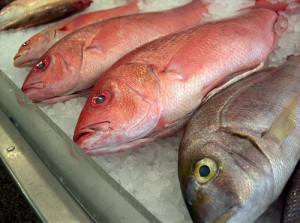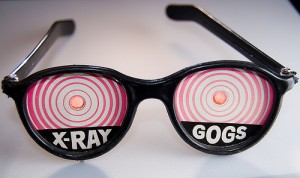As we prepare to flee the summer stank of Brisbane for the Florida coast on the longest commercial flight in the world – Brisbane to Dallas — I’m comforted by my friend Roy Costa’s comments about airline food: it’s a time bomb.
ABC News 20/20 obtained lists of recent health violation records from the U.S. Food and Drug Administration through a Freedom of Information Act request.
Over almost four years, the industry counted more than 1,500 health violations. “Significant” problems were found at a much higher rate than in other industries the  FDA inspects, the agency said.
FDA inspects, the agency said.
“You put that all together, and you have a time bomb,” said Roy Costa, a food-industry consultant and former health inspector (right, not exactly as shown).
FDA reported evidence of mice on Delta Airlines planes. In a statement, the airline said, “This clearly was an isolated incident and we cooperated with the FDA immediately to resolve it immediately after it was brought to our attention.”
For LSG Sky Chefs, the industry giant that provides food to many airlines, records showed company food facilities infested with ants crawling over discarded food, flies both dead and alive — and roaches all over.
If insects are in the room, they’re probably in the food, Costa said.
“You can’t have insect remains and feces of rodents and dead flies [in these areas],” Costa said.
In a statement, LSG Sky Chefs said, “Our facilities are inspected by several internal and external agencies, including the Food and Drug Administration (FDA). As with any FDA inspection, documented observations are indicated on a 483 form and if observations are cited at our facilities we immediately review and correct. In two cases, the FDA 483 forms led to the issuing of warning letters that were immediately addressed by us to ensure complete FDA compliance.”
At company after company, the FDA saw things like dirty cooking areas, old or moldy products and employees not washing their hands.
And those who fly business or first class and think the curtain protects them from the risk of contaminated food should think again, Costa warned.
“Fancy food isn’t safe food. The bacteria really don’t care.”
Costa addressed the report in his own blog, writing, “The comments by industry are predictable. The “we didn’t do it” philosophy, “head in the sand” approach is  apparent, in spite of spin doctor statements. When you get caught with these types of issues, the public is not going to listen to the rhetoric about how great your food safety programs are, quite the contrary. Not one of these spokespersons would admit that their company had a problem or offer solutions, its all about denial. We see this again and again, especially after outbreaks.
apparent, in spite of spin doctor statements. When you get caught with these types of issues, the public is not going to listen to the rhetoric about how great your food safety programs are, quite the contrary. Not one of these spokespersons would admit that their company had a problem or offer solutions, its all about denial. We see this again and again, especially after outbreaks.
“I lay much of the blame at the feet of FDA. This agency has the authority to stop such conditions and they opt time and again to walk away from problems and not take the tough stand that as consumers we expect, except in the most egregious of cases. … Taking a tough stand by inspectors is personally costly, it means confrontation, its perilous to careers and even to ones personal safety. I know this only too well, so I am very grateful to have an opportunity to again stand some ground against the food industry representatives who want to claim all is well in the face of mounting sanitation and health code violations and deceive themselves and the public.
“This type of public confrontation is what we need to dispel the false sense of security the food industry and FDA has created for itself.”
The complete post is available here.
Roy, see you in Florida.










